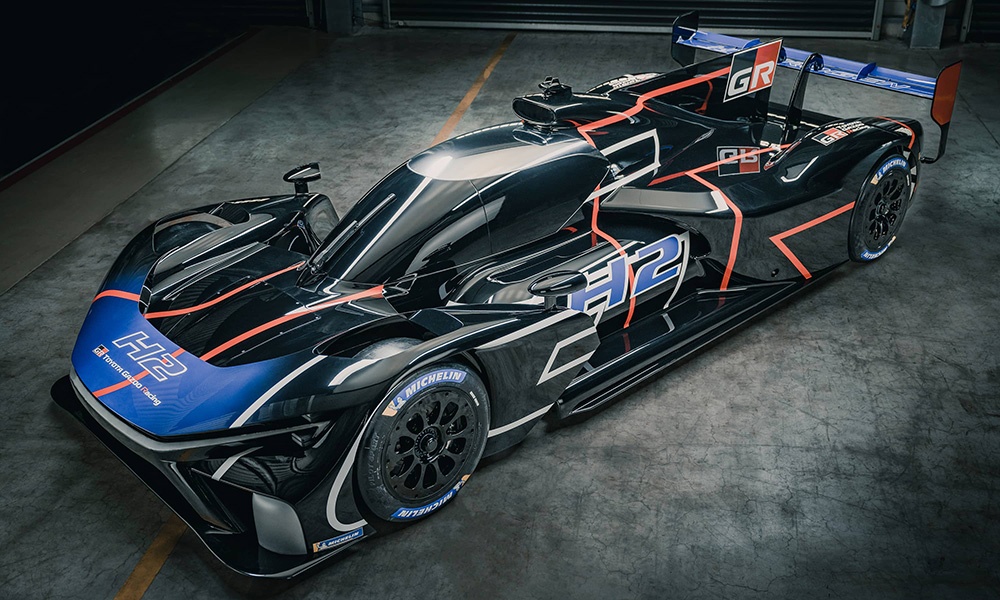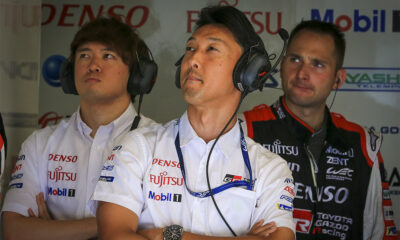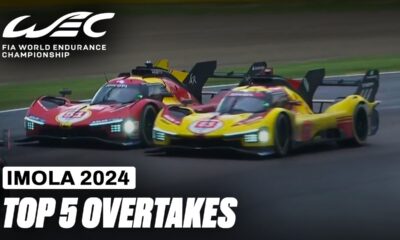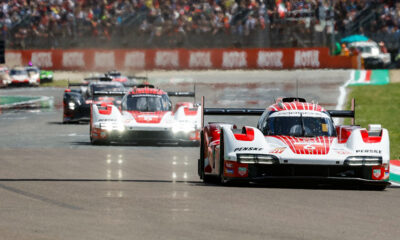
Photo: Toyota
Toyota’s commitment to the ACO’s future hydrogen class will be dependent on the “stability of rules” according to Toyota Gazoo Racing WEC team director Rob Leupen, who said the Japanese manufacturer needs “confidence” in the regulations-makers for such a program to move forward.
Revealed last weekend at Le Mans, Toyota took the wraps off its GR H2 Racing Concept, a combustion engine-hydrogen prototype that’s been designed with the new regulations in mind.
Toyota is the first major manufacturer to have presented such a concept race car, although Leupen said that doesn’t indicate they’ll enter the category that’s been targeted for a 2026 launch in the FIA World Endurance Championship.
“I think some things have to happen for that before we would take a decision like this,” he told Sportscar365.
“Stability of rules, for example. I think [Akio Toyoda, Toyota Motor Corporation chairman] made that very clear.
“There’s no commitment from that side at all, and I think this BoP [at Le Mans in Hypercar], what has happened, is a good sign that when you do something like this, you need to have confidence, and at the moment there is not.
“There is no fixed date.
“We have made no commitments when we will join or if we will join. The main thing is that we have enough to discover.”
Leupen said the project, the brainchild of Toyota Motor Corporation chairman Akio Toyota, is “one to two years” away from hitting the track, with development in the early stages between Toyota Gazoo Racing Europe and TGR in Japan.
TGR-E, the same organization behind the operation of the Toyota GR010 Hybrids in the FIA World Endurance Championship, has been tasked with chassis development.
“This is where we’re very proud of because we are part of the project,” said Leupen.
“It’s a similar project as what we’re doing now with the GR010 and before with the LMP1, together with Japan.
“They’re working on the powertrain, we’re working on the chassis. We will start developing it slowly and we’ll move to hopefully more prospering activities in the near future.”
Leupen said Toyota is currently “looking into technologies” and will take lessons learned from the GR Corolla H2 Concept that’s been running in Japan’s Super Taikyu series for the last two years, although it is aiming to combine a new combustion-hydrogen engine with a hybrid system.
ACO President Pierre Fillon recently announced the expansion of the ACO’s regulations to allow hydrogen-fueled engines to race alongside cars with fuel cell technology, which the Mission H24 project currently utilizes.
“For us, I think [the allowance of combustion engines] is the signal to investigate this deeper and to join the [ACO] technical working group and to see for the long-term future if this is something positive for us to develop,” Leupen explained.
“We have based, as the H2 Corolla is a combustion engine, we move along to the next moment and we’d like to have diversity in the powertrain deployment [options].
“We have EV, we have fuel cell, we have hybrid, we have ICE on H2.
“It’s a good kickoff. It’s something you like and you hear and [that] you’re part of it. It’s great for us to be part of the story.
“It was great to be [in the WEC] as one of the first on the hybrid side, together with Audi and Porsche later on.
“It’s the same [now] as what’s going on here. It’s something you would like to happen.”






















